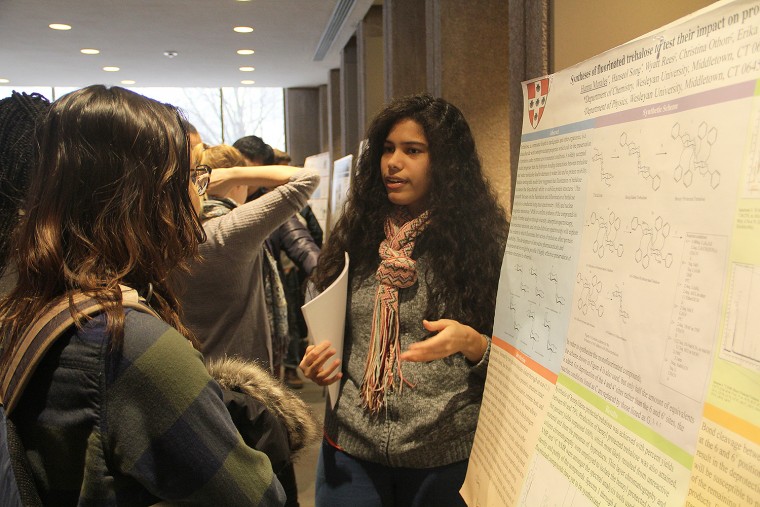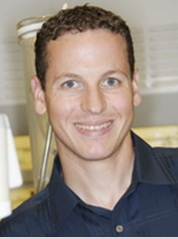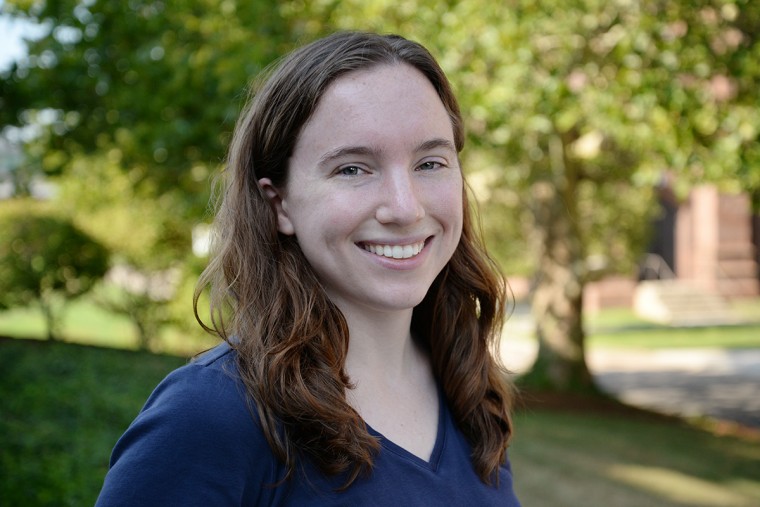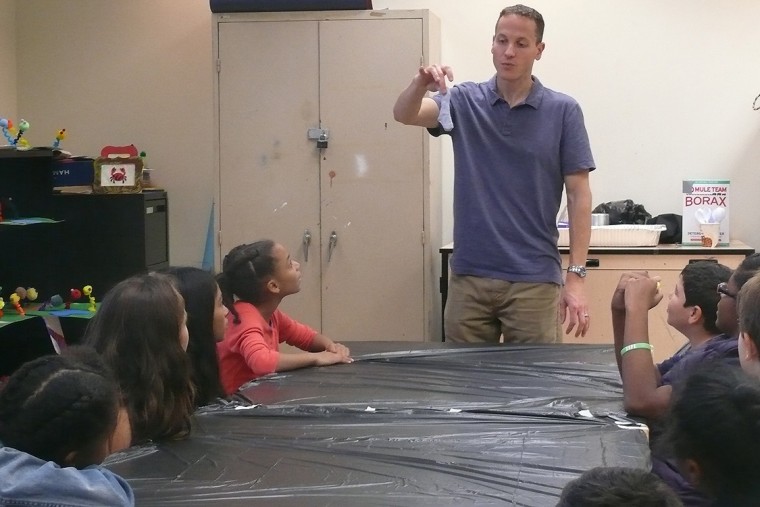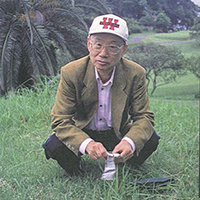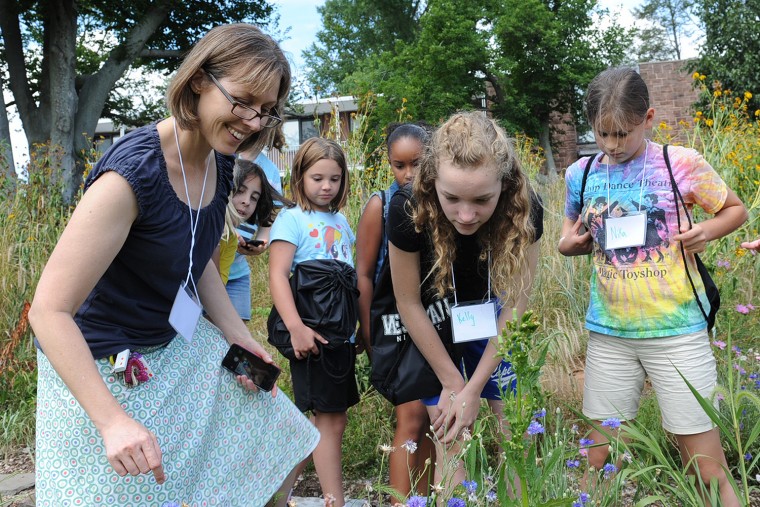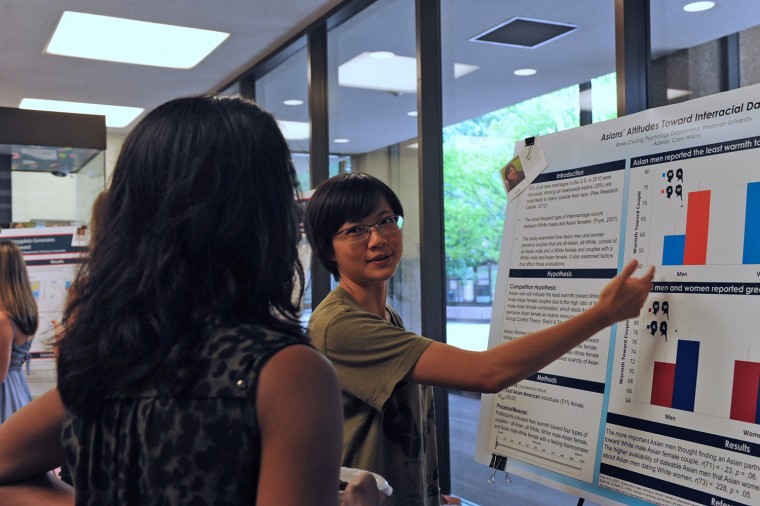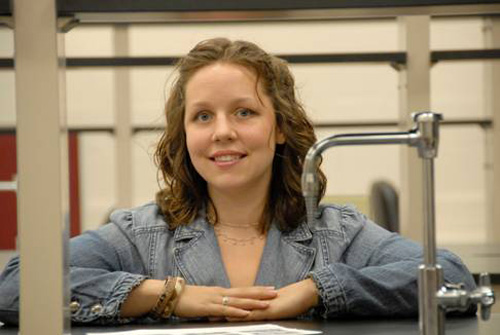Four Wesleyan academic departments, from psychology to dance to chemistry to biology, are competing for grant funds through a new crowdfunding site specifically designed for research project fundraising. Experiment.com's Challenge Grant for Liberal Arts Colleges asked scientists to define a scientific research question for the crowd with a prize for the project with the most backers. The pilot launched on Feb. 24 and concludes March 25.During this 31-day period, the goal is to reach $4,000 in funding. If so, the team is granted the money. If not, they receive nothing and no one's pledges are charged. By backing a project, participants will receive updates, results and data from project creators. Wesleyan research include how the…
Associate Professor of Chemistry Brian Northrop and Alexander Goldberg ’15 are co-authors of “Spectroscopic and Computational Investigations of The Thermodynamics of Boronate Ester and Diazaborole Self-Assembly,” published in The Journal of Organic Chemistry, January 2016. The article is composed of Goldberg’s undergraduate thesis research.
Synform, a journal of chemistry, recently featured an interview with Associate Professor of Chemistry Brian Northrop through its Young Career Focus series. Within it, Northrop briefly discusses his research and his most important scientific achievements. "Currently, I think the greatest impact of my group’s research is more a matter of approach than a specific result. By this I mean that we approach research projects working across each of the ‘three M’s’ of chemistry: making, modeling and measuring. This complementary blend of synthesis, analysis, and theory provides my group with a deep, fundamental understanding of the chemical reactions and processes we…
In this News @ Wesleyan story, we speak with Michelle Personick, a new member of Wesleyan's Chemistry Department. Q: Welcome! Please fill us in on your life before Wesleyan. A: I’ve lived in the Northeast for most of my life. I grew up in New Jersey and then moved a bit further north to go to college in Vermont. I did my graduate work at Northwestern University in Evanston, IL, which is just outside of Chicago. It was fun to be a short train ride away from Chicago and to be able to experience a new city for a few years.…
(more…)
Satoshi Omura was awarded the Nobel Prize for Medicine for developing a new drug, which has nearly eradicated river blindness and dramatically reduced mortality from other devastating diseases. Omura made the discovery that led to this drug while a visiting professor at Wesleyan in the early 1970s.
Omura has remained in touch with Wesleyan colleagues since then and in 2005 was appointed the first Max Tishler Professor of Chemistry, an honorary position. He returns to campus every few years to meet with faculty and present his current research.
The Green Street Teaching and Learning Center hosted a Girls in Science Camp Aug. 3-7. Wesleyan faculty members Ruth Johnson, assistant professor of biology (pictured third from left); Erika Taylor, assistant professor of chemistry, assistant professor of environmental studies (pictured at far right); Chris Othon, assistant professor of physics (pictured at left), along with three undergraduate students, worked with the campers on various experiments. Sara MacSorley, director of the GSTLC (second from left), coordinated the activities. Johnson led the campers on a bug hunt through Wesleyan's West College Courtyard garden. There, the girls observed insects while considering insect diets and insect life-cycles. The girls…
On July 30, Wesleyan's Summer Research Poster Session took place at Exley Science Center. More than 110 undergraduate research fellows from Math and Computer Sciences, Astronomy, Physics, Chemistry, Molecular Biology and Biochemistry, Biology, Earth and Environmental Sciences, the Quantitative Analysis Center, and Psychology presented research at the event. (Photos by Laurie Kenney) (more…)
Science in Society major Stacy Uchendu '17 is participating in Wesleyan's Ronald E. McNair Post Program, which assists students from under-represented groups in preparing for, entering and progressing successfully through post graduate education. Stacy is researching second generation biofuels as a McNair Scholar.
On June 15, Erika Taylor, assistant professor of chemistry, assistant professor of environmental studies, received a grant from the National Institute of Allergy and Infectious Diseases (part of the National Institutes of Health) to support her research on “Inhibition of (the enzyme) HeptosyltransferaseI for the treatment of Gram-negative bacterial infection.” Gram-Negative bacteria include things like E. coli, Salmonella, and V. cholerae (the cause of Cholera) that are common causes of food-bourne illnesses. The grant, worth $492,000 will enable her to engage multiple graduate and undergraduate students in the proposed work through June 2018. Preliminary results for this project were obtained…
Erika Taylor, assistant professor of chemistry, assistant professor of environmental studies, has co-authored a paper published in FEBS Letters, an international journal established for the rapid publication of final short reports in the fields of molecular biosciences. The paper, which is an expansion of her lab’s work on the enzyme Heptosyltransferase I, is titled "Cloning and Characterization of the Escherichia coli Heptosyltransferase III: Exploring Substrate Specificity in Lipopolysaccharide Core Biosynthesis," The paper is co-authored by her former graduate student Jagadesh Mudapaka. FEBS Letters is published by Elsevier on behalf of the Federation of European Biochemical Societies. Taylor also is the co-author of “Improving Alternate Lignin Catabolite Utilization of LigAB…



